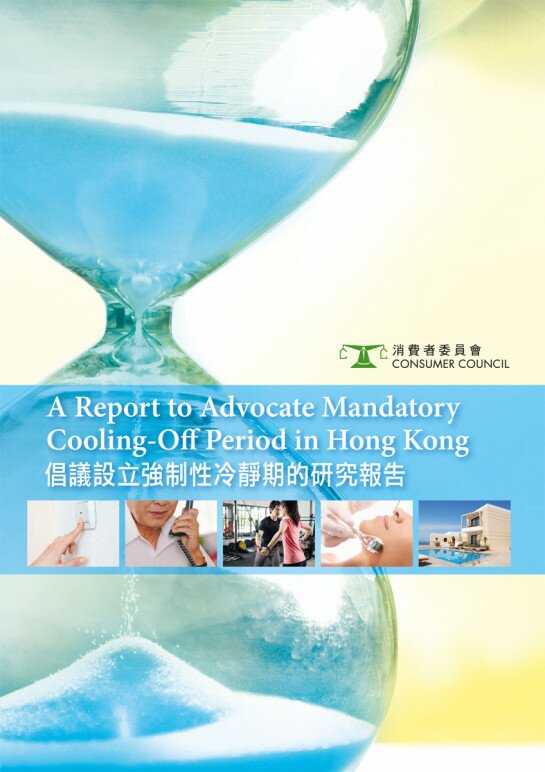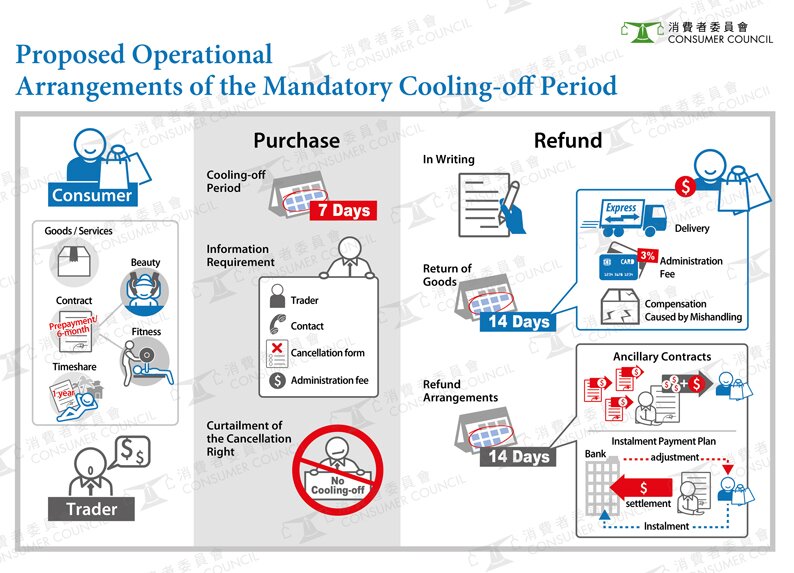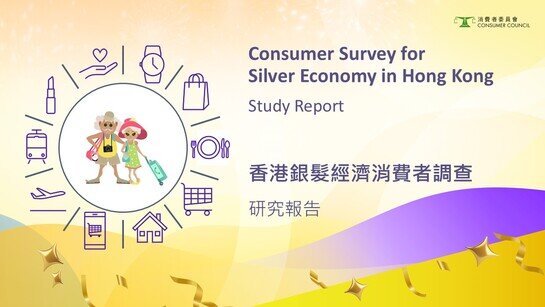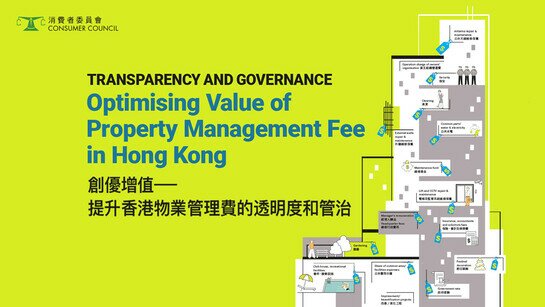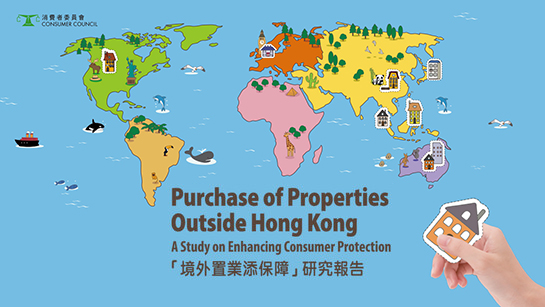Introduction
A cooling-off period is a useful tool to protect consumers by allowing them to cancel a purchase unilaterally and seek refund within a reasonable period of time after the conclusion of a contract. As there is no need to prove any wrongdoings on the part of the trader, this cancellation right enhances consumer protection in situations where unscrupulous and high pressure sales tactics were deployed. This in turn should act as a deterrent to traders or their representatives who have the intention to or habitually engage in such tactics.
Over the years, the Council strenuously advocated in favour of introducing a mandatory cooling-off period in Hong Kong. In addition to helping different industries develop and implement codes of practice which contains voluntary cooling-off provisions, the Council also advocated for the Government to legislate for a mandatory cooling-off regime. In 2010-11, the Government conducted a public consultation on the legislative proposals to strengthen consumer protection against unfair trade practices. Apart from amending the Trade Descriptions Ordinance (“TDO”) to create new offences, the consultation report also recommended imposing a mandatory cooling-off period for 2 types of consumer transactions, namely contracts involving goods and/or services with a duration of not less than 6 months and transactions concluded during unsolicited visits to consumers’ homes or places of work. Notwithstanding strong support of this proposal by the Council and the community as it was thought that imposing a mandatory cooling-off period on specific transactions would not only give consumers enhanced protection but also deter unscrupulous traders from engaging in malpractices, this recommendation was not included in the bill to amend the TDO in 2012 due to concerns expressed by the business sector and others.
In recent years, the Council observed that unfair trade practices in different sectors are still prevalent. Not only are there worrying incidents of high pressure selling by unscrupulous traders causing consumers to suffer loss financially, in some instances, consumers could also be hurt either physically or mentally. In May 2016, the Panel on Economic Development of the Legislative Council passed a motion urging the Government to introduce legislation on the imposition of a mandatory cooling-off period, according priority to pre-paid services involving large volumes of complaints and large amounts of payment, such as those provided by fitness centres and the beauty industry, so that consumers may unconditionally receive a refund of the paid fees and cancel the contracts during the cooling-off period.
Learning from past experience, the Council renewed its efforts in its advocacy for the introduction of a mandatory cooling-off period, and decided to conduct an in-depth study on this subject. For this report, the Council identified common malpractices through analysing enforcement statistics relating to unfair trade practices and examining the Council’s complaints cases. In addition, the Council reviewed the features and limitations of the various voluntary cooling-off regimes of different sectors in the market and made references to the Mainland and overseas mandatory cooling-off legislations and experience. Furthermore, the Council considered the views and concerns of businesses in relation to the proposed introduction of a mandatory cooling-off period. Taking into account all of the above, the Council formulated its recommendations in the Report.
The contents of this study include:-
- A review of consumer complaints from recent years and identification of common malpractices in the market;
- An evaluation of the effectiveness of a voluntary cooling-off period and analysis of the pros and cons of a mandatory cooling-off regime;
- An exploration the need to impose a mandatory cooling-off period; and
- Recommendations on the scope of application and the operational arrangements of a mandatory cooling-off regime.



